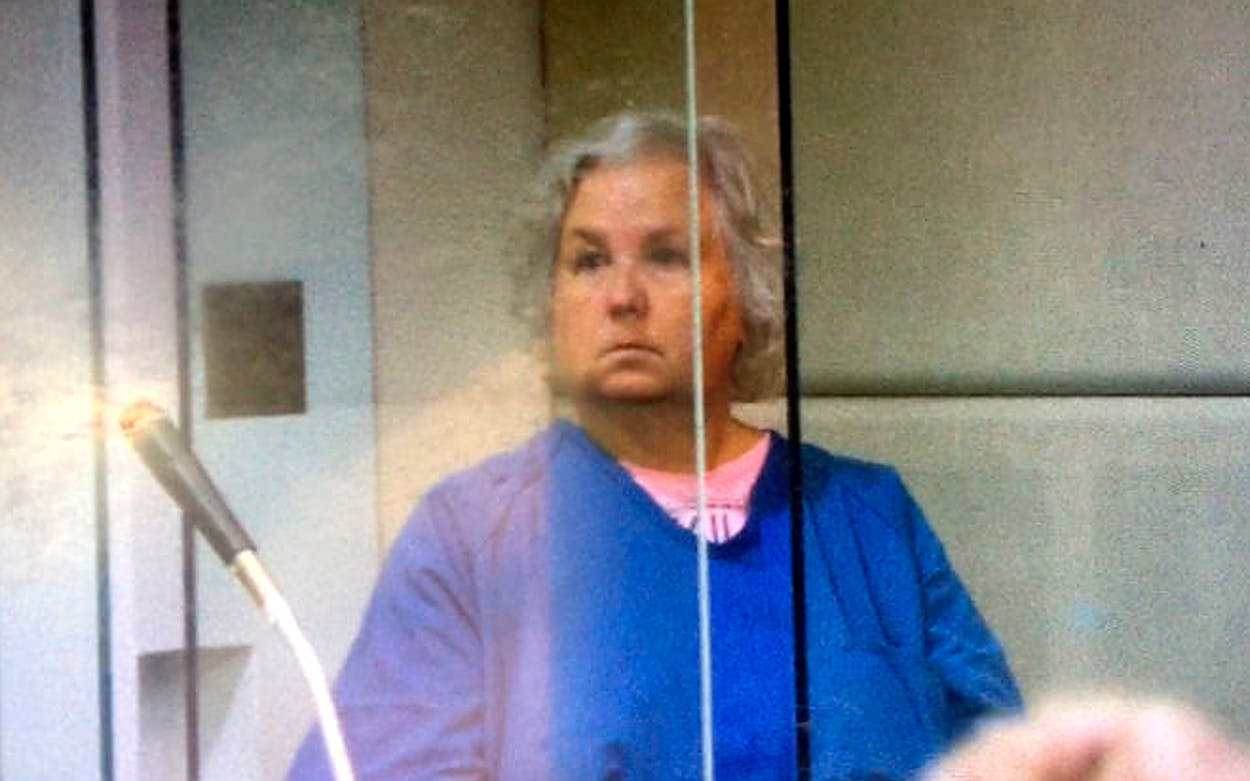The things that people reveal in their art don’t necessarily tell us anything about who they are as people. On a record, Bun B can be terrifying; in real life, he’s kind, thoughtful, and generous. Pantera guitarist “Dimebag” Darrell Abbott made some of the meanest sounds ever conjured on an instrument, yet his friends and family describe a bighearted fella who made everyone around him feel special. Sometimes people let out their dark side through the art they create, in order to free up the emotional space to be their joyful selves the rest of the time.
And, other times, they write essays entitled “How to Murder Your Husband” and, seven years later, are arrested and charged for the murder of their husband.
That’s the story of Wichita Falls native and University of Houston alumna Nancy Brophy, who was arrested last week, three months after her husband was found dead in a classroom at the Oregon Culinary Institute, where he worked. Although the details of the investigation are spotty, police arrested the 68-year-old Brophy in Portland in early September.
Brophy, a romance novelist, has explored dark topics in her work. The “How to Murder Your Husband” essay (which has since been made private by the author, though the version in Google’s cache is still available) is more of a meditation on the nature of murder than a guide. She goes through potential motives—from the financial to the personal (“lying, cheating bastard”) to the improbable (perhaps the woman who kills her husband is also a professional assassin)—and weighs the pros and cons of various instruments of death. She rules out most options—poison, she writes, is easy to trace and takes too long, leaving a killer months to deal with a sick husband, while knives are too messy. Heavy weapons get a more favorable treatment, but her approval rating for guns is ambiguous—she notes that they’re “loud, messy, and require some skill” but seems to appreciate that they are fast and efficient.
The essay is a curiosity, in light of her implication in her husband’s murder. But there’s little in it to suggest that Brophy was actually plotting anyone’s death—it reads more like an irreverent blog post from someone whose day job is dreaming up these kinds of scenarios. Which leads to the question of whether Brophy’s career as a self-published romantic suspense novelist cast additional suspicion on her by investigators.
If Brophy’s career as a self-published romantic suspense novelist made her more suspicious, investigators took their time acting on any suspicions. A spouse is an obvious suspect in a murder, and Brophy wasn’t arrested until several months after her husband died. Parsing her writing for information is an interesting diversion—it is, after all, quite rare that an accused murderer has an essay floating around with such an on-the-nose title—but it’s unlikely to pay much in the way of dividends for armchair sleuths, since there’s nothing to suggest a direct link between her work and the actual crime. Police have yet to go into detail about what led them to suspect Brophy in her husband’s death, noting only that “on information learned during the investigation, detectives believe Nancy L. Crampton-Brophy is the suspect in Daniel C. Brophy’s murder.” The next hearing in the case is scheduled for Monday, September 17.








